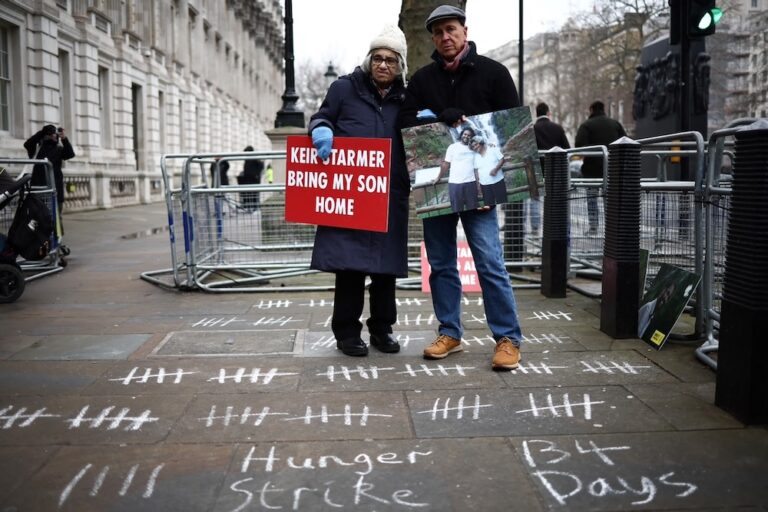(Freedom House/IFEX) – Freedom House is expressing its concern for the security and well-being of Colonel Mohammed Al-Ghannam, a former distinguished legal advisor to the Egyptian Interior Ministry. Al-Ghannam was forced to retire in April 1999 following his public allegations of government involvement in corruption and human rights abuses. Al-Ghannam published a series of articles […]
(Freedom House/IFEX) – Freedom House is expressing its concern for the security and well-being of Colonel Mohammed Al-Ghannam, a former distinguished legal advisor to the Egyptian Interior Ministry. Al-Ghannam was forced to retire in April 1999 following his public allegations of government involvement in corruption and human rights abuses.
Al-Ghannam published a series of articles in the “Middle East Times” and other opposition newspapers accusing police and government officials of misconduct. In one article, he blamed the Interior Ministry for the lax security situation in which the murders of two Copts in Al-Kosheh in August 1998 led to unrest during which up to 1,200 Copts were arrested and reportedly tortured by police.
Another article, entitled “The Tragedy of Administrative Detention”, which outlines the security services’ policy of holding suspects indefinitely, in contravention of their constitutional rights, was scheduled to appear in the 3 to 9 June 1999 issue of the “Middle East Times”. However, the article was removed from the paper prior to publication by the censor’s office for foreign publications.
In 1998, Al-Ghannam offered to give evidence in support of the newspaper “Al-Shaab”, which was being sued by a former interior minister who had been accused in the paper of corruption. Al-Ghannam reported that he had been pressured by his ministry not to testify. Magdi Hussein, the editor of “Al-Shaab”, was convicted and sentenced to prison.
Al-Ghannam himself was detained for nineteen days coinciding with Egyptian President Hosni Mubarak’s visit to Washington, DC in June-July 1999. He believes that the arrest was an attempt to prevent him from contacting foreign media during the president’s visit. He is also concerned that he may be arrested again in advance of Mubarak’s upcoming trip to Washington, DC on 22 March 2000.
In March 1999 an Egyptian court banned Al-Ghannam from traveling abroad. The official reason for the ban involved a case dating from October 1997 in which Al-Ghannam shot and wounded a doctor. However, the doctor confirms that the charges were dropped.
In November 1999, the Swiss embassy granted Al-Ghannam a visa to travel to Bern to petition for political asylum. With the shooting case against him settled, Al-Ghannam assumed that the travel ban would be lifted and attempted to leave for Switzerland on 12 February 2000.
Instead, he found that a second ban had been imposed because of an alleged incident that took place in June 1999. Official reports say that Al-Ghannam shot and wounded a man in a land dispute. Al-Ghannam insists that the case was fabricated, citing a laboratory report stating that the pistol he allegedly used in the shooting was broken and could not fire.
Freedom House fears that Al-Ghannam has faced harassment, including his arrest and the loss of his job, in retaliation for his press statements implicating police and ministry officials in human rights abuses and corruption. The organisation urges the Egyptian government to protect Al-Ghannam’s right to free expression, as well as his right to travel, both of which are guaranteed by Egypt’s obligations under international law.


